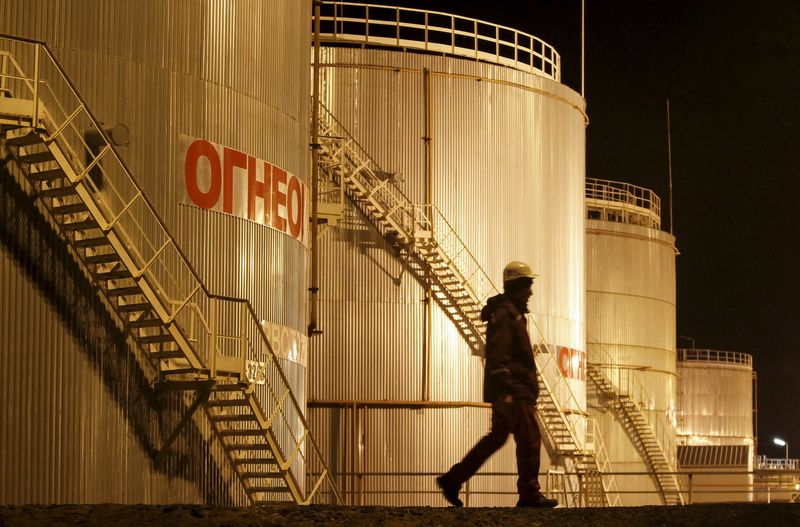By Barani Krishnan
By Barani Krishnan
Investing.com – OPEC+’s best efforts to calm the oil market amid the coronavirus crisis doesn’t seem to have worked.
Crude prices settled down again on Tuesday, remaining in a bear market and erasing gains from earlier in the day, as representatives of 23 oil-producing countries meeting in Vienna were unable to assuage investors that the fundamental picture for oil could be improved in the near-term with more supply cuts.
Both the Brent and WTI crude benchmarks rallied more than 1% in New York’s morning trade after the OPEC+ representatives meeting in Vienna reportedly discussed additional cuts of up to 1.0 million barrels per day to cope with lost demand from China’s coronavirus crisis.
But as the day progressed, investors became less optimistic of the group’s supply reduction targets and what that could achieve in a market that could lose even more barrels in China.
Brent, the London-traded benchmark for crude oil, settled down 34 cents, or 0.6%, at $53.96 per barrel. It also hit a new 13-month low at $53.87.
New York-traded West Texas Intermediate, U.S. crude benchmark, settled down 50 cents, or about 1%, at $49.61. WTI hit a 13-month low of $49.52 in intraday trade.
Year-to-date, Brent is down about 18% while WTI shows a loss of nearly 19%.
The U.K. benchmark was also 24% lower now than at its January peak of $71.75 a barrel, while its U.S. peer was at a 23% discount to last month’s high of $65.65. Any slide of 20% or more from a recent high technically defines a bear market.
Officials at Tuesday’s meeting in Vienna were considering additional cuts of 800,000-1.0 million bpd to help create a supply “shock” in the oil markets, the Wall Street Journal reported.
It said OPEC+ had initially thought of a 500,000 bpd reduction but doubled down on that number after realizing that it won't be enough to pull the market out of its current rut.
"If OPEC+ delivers anything less than an additional 1 million barrel per day cut, oil could fall further into bear market territory," said Edward Moya, analyst for OANDA in New York.
Tuesday’s rebound was also cut short by comments from Russian Energy Minister Alexander Novak, who said he wasn’t certain if it is time for OPEC+ to add to output curbs. Aside from the Saudis, the Russians are the second most important member of the oil-producing alliance.
The coronavirus crisis also presents a different challenge to OPEC. Unlike past sell-offs in oil where oversupply was always the problem, this crisis is more about demand or, rather, the lack of it.
Demand for oil from the world’s largest buyer China has suddenly collapsed — dropping by about three million barrels a day, or 20% of total consumption, according to Bloomberg estimates — and OPEC may not be able to cut its way out of that vacuum of buying.
“Those cuts won’t alleviate the lack of demand for lighter, sweeter barrels such as U.S. crude and Brent,” said Scott Shelton, energy futures broker at ICAP (LON:NXGN) in Durham, N.C. “Until the demand comes back, I don’t think the market is going to be able to balance itself without building a significant amount of crude.”
